Practice Areas
From misdemeanors to serious felonies, we provide strategic, client-focused representation across a wide range of criminal charges.
DUI / DWI Defense
A DUI charge doesn’t have to define your future. We fight to protect your license, your record, and your freedom—starting with the very first hearing.
-
Most DUI cases start with a few key questions: Is this your first offense? Have you had a DUI in the past 10 to 15 years? What was your blood alcohol content (BAC)? These answers shape not only the type of case you have, but also what options may be available to you—especially in Delaware County, where first-time offenders often qualify for a program called ARD (Accelerated Rehabilitative Disposition).
If you haven’t had a DUI in the past 15 years, you’re likely eligible for ARD. This program eliminates jail time entirely, reduces your license suspension from a potential one year down to a maximum of 60 days, and gives you a path to have the charge expunged once the program is completed. For clients with prior DUI convictions or more serious criminal histories, we look closely at the BAC level to determine what penalties apply and whether a diversion program is still an option.
Pennsylvania law uses a tiered system to determine DUI penalties. A BAC of .08 to .099 is considered Tier 1, which carries minimal penalties for first-time offenders—often no jail time and no license suspension. Tier 2, from .10 to .159, increases the risk of harsher consequences, and Tier 3, which includes BACs of .16 or higher or the presence of drugs in your system, carries the most severe penalties. Repeat offenses within 10 years increase the severity across all tiers, including mandatory jail time and longer license suspensions.
Because DUI cases are so fact-specific, we need as much detail as possible to build a strong defense. Where were you driving? Did you participate in field sobriety tests? Did you submit to a breath or blood test? Were your rights properly explained? These factors help us determine whether your rights were violated, whether the evidence can be challenged, and how we can position your case for the best outcome. If you've been charged with DUI, contact Kevin O’Neill Law right away—we're here to guide you through every step.
Drug Crimes
From possession to distribution, drug charges carry serious consequences. We’ll build a strong defense strategy focused on minimizing penalties and protecting your rights.
-
When it comes to drug offenses, one of the most important questions is whether the charge is graded as a misdemeanor or a felony. Possession of a small amount of a controlled substance—whether it’s marijuana, cocaine, methamphetamine, fentanyl, heroin, or something else—is generally a misdemeanor offense. These cases often result in probation and, in many instances, little to no jail time, especially for first-time offenders.
What pushes a case into felony territory is usually the amount and packaging of the drugs, along with any evidence suggesting intent to distribute. For example, if someone has a small amount of marijuana—under 30 grams—and it’s all in one bag, it’s typically treated as personal use and charged as a misdemeanor. But if that same marijuana is split into multiple bags, accompanied by a scale, large amounts of cash, or other indicators of sales activity, the Commonwealth may try to elevate the charge to a felony distribution case.
These cases often hinge on possession, and that’s where we focus a large part of our defense. Just like with firearms, drug possession charges require the prosecution to prove you knew the drugs were there, had the ability to control them, and intended to do so. If the drugs weren’t found directly on your person—say they were in a car or a shared space—the Commonwealth has a much harder time meeting that burden. That’s especially true in situations with multiple people involved, where it’s not clear who actually had control over the substance.
At Kevin O’Neill Law, we scrutinize the evidence closely—how the drugs were found, who had access, and whether the facts support the charges being brought. Every case is different, but our goal is always the same: to protect your record, challenge weak assumptions, and push for the best possible outcome.
Assault & Violent Crimes
Facing assault or other violent crime charges? We provide aggressive, evidence-driven representation to challenge the prosecution and advocate for your side of the story.
-
Assault charges in Pennsylvania fall into three main categories: summary offenses, simple assault, and aggravated assault. The severity of the charge—and the potential penalties—depends on the level of harm caused, whether a weapon was involved, and the intent of the accused. At Kevin O’Neill Law, we analyze every detail to build a strong defense and challenge the prosecution’s case.
Summary assault charges are the least serious and are typically issued as citations, often resolved with a fine and no jail time. These are usually filed in the context of minor altercations or verbal confrontations that don’t result in injury. While lower in severity, they can still carry consequences and should not be ignored.
Simple assault is charged when someone is accused of causing or attempting to cause bodily injury to another person. A common example might be a fight where a punch is thrown, but no serious injuries occur. These are typically graded as misdemeanors—often of the second degree—and are usually punishable by probation rather than jail time. Still, they carry criminal records and should be taken seriously.
Aggravated assault involves more serious allegations—where the victim is said to have suffered “serious bodily injury,” such as broken bones, major concussions, or internal injuries. These cases can be charged as felonies and often result in substantial prison sentences, especially when weapons are involved. Whether it’s a domestic dispute or an altercation at a bar, we examine the facts closely to determine whether the Commonwealth can prove the level of injury and intent necessary to support a felony conviction. Each case is fact-specific, and we tailor our defense accordingly to protect your rights and freedom.
Theft & Property Offenses
Whether it’s shoplifting or grand theft, these charges can impact your record and reputation. We work to resolve these cases strategically, often aiming for dismissal or reduction.
-
Theft and property offenses in Pennsylvania can range from low-level misdemeanors to serious felony charges—often depending on the value of the item and the person’s prior criminal history. At Kevin O’Neill Law, we handle everything from shoplifting cases to stolen vehicle allegations with a focus on protecting your rights and minimizing long-term consequences.
The grading of theft charges is largely tied to the value of the property involved. For example, retail theft is typically considered a misdemeanor, and first-time offenders often receive probation. However, theft charges escalate quickly with repeated offenses. Under Pennsylvania law, a third retail theft, no matter how minor—such as stealing a pack of gum—can be charged as a felony. That’s why understanding a client’s criminal history is critical to building an effective defense strategy.
Another common charge is receiving stolen property, which does not involve the act of theft itself, but rather the possession of an item that the defendant knew—or should have known—was stolen. This comes up frequently in cases involving vehicles, rental agreements, or property transfers where the circumstances are not always clear. For instance, someone driving a vehicle that was rented by another person and not returned on time could find themselves charged, even if they had no knowledge the vehicle was reported stolen.
Ultimately, these cases are highly fact-specific. We examine not only the alleged value of the property and your record, but also the evidence of intent and knowledge—key elements the prosecution must prove. Whether you're accused of theft, receiving stolen property, or another property-related offense, we’re here to provide a thoughtful, strategic defense aimed at protecting your future.
Domestic Violence
Accusations of domestic abuse can be life-changing. We handle these sensitive matters with discretion and determination, ensuring your voice is heard.
-
Allegations of domestic violence are some of the most emotionally charged and high-stakes cases we handle. These cases can involve spouses, partners, family members, or household members—and the impact of an accusation can be immediate and severe. A conviction can affect not only your freedom, but also your reputation, employment, housing, and even parental rights. At Kevin O’Neill Law, we understand the weight of these charges and approach them with the discretion, urgency, and strategy they demand.
Domestic violence charges can range from harassment and simple assault to aggravated assault, strangulation, or violation of a Protection From Abuse (PFA) order. These cases often depend on conflicting accounts, limited evidence, or assumptions made in the heat of a domestic dispute. That’s why we act quickly to gather the full picture, interview witnesses, review police reports, and uncover any inconsistencies or lack of evidence in the prosecution’s case.
In many situations, clients are surprised to learn that even if the alleged victim doesn’t want to pursue charges, the Commonwealth may still proceed. The key to defending these cases is early intervention and a clear understanding of the facts. We look closely at the relationship between the parties, any prior history, and the specific circumstances of the incident to determine whether the charge fits—and whether it can be challenged, reduced, or dismissed entirely.
Domestic violence cases carry serious personal and legal consequences—but they also come with legal defenses. If you’ve been accused of a domestic-related offense, it’s critical to act fast and have experienced counsel by your side. Contact Kevin O’Neill Law for a confidential consultation—we’re here to listen, advise, and protect your rights at every step.
Probation & Parole Violations
A simple misstep shouldn’t land you back behind bars. We’ll help you navigate violations and work toward keeping you out of jail and on track.
-
Violations of probation or parole are some of the more serious matters we handle. These cases often move quickly and can result in jail time, extended supervision, or even revocation of your release. Violations generally fall into two categories: technical violations and direct violations. Understanding the difference—and acting fast—can make a significant impact on your outcome.
Technical violations include non-criminal issues like missing scheduled meetings with your probation officer, failing to pay court costs, or testing positive for drugs or alcohol. While these violations typically don’t result in long-term incarceration, they can still lead to temporary detention or extended probation terms. Even in these cases, it’s important to have legal representation to ensure your rights are protected and that the punishment is proportionate.
Direct violations are more serious and occur when someone commits a new offense or is arrested while already on probation or parole. These situations carry a much higher risk of significant jail time, especially if the new charges are serious or if your prior compliance has been poor. The outcome of a direct violation often depends on several factors—such as the recommendation of your probation officer, the nature of the new offense, and your behavior while under supervision.
At Kevin O’Neill Law, we act quickly to assess your situation, gather the necessary information, and work toward the best possible resolution. That may include petitioning to lift a probation detainer that’s keeping you in jail, negotiating with the probation department, or coordinating resolution of multiple cases at once. These matters are highly case-specific, and our goal is always to minimize the consequences and help you move forward on solid footing.
Don’t let your past limit your future. We help eligible clients seal or expunge criminal records to restore opportunities for employment, housing, and more.
Expungements
-
When evaluating a client’s eligibility for expungement in Pennsylvania, we start by looking at the nature of the charge and the outcome. Many individuals who complete a first-time offender program—such as Delaware County’s ARD (Accelerated Rehabilitative Disposition) program for DUI—or those charged with non-traffic summary offenses may be eligible to have their records completely expunged. A full expungement means the charge is entirely removed from your criminal history: it will not appear in background checks, and neither the government nor the public can access it.
Pennsylvania also offers another path: record sealing, which limits public access to certain criminal records. This is often available for prior misdemeanors or some non-violent felonies. While sealed records remain visible to law enforcement and government agencies—such as the police or the District Attorney’s Office—they are hidden from employers, landlords, and others conducting routine background checks.
It’s important to understand the difference: expungement erases a record entirely, while sealing restricts who can view it. Eligibility depends on many factors, including the type of offense, whether it was non-violent or involved a firearm, and the time that has passed since the case closed.
We handle both types of relief and regularly work with clients looking to clear their record following diversionary programs, minor offenses, or older summary convictions. For example, most ARD cases can be expunged one year after completion, and summary offenses are often eligible for expungement after five years with no further arrests or convictions.
Every case is different. We take the time to review your criminal history, understand your goals, and determine the best legal path forward—whether that means full expungement or sealing your record from public view.
Traffic Violations
From speeding tickets to license suspensions, we handle a full range of traffic matters with the goal of minimizing fines, points, and disruptions to your driving privileges.
-
Traffic violations may seem minor, but they can carry serious long-term consequences—including points on your license, insurance increases, hefty fines, and even license suspension. At Kevin O’Neill Law, we have a deep understanding of Pennsylvania traffic law and how to navigate both minor citations and more complex license-related issues. In fact, traffic and DUI defense were the foundation of our practice—giving us a unique advantage when representing clients in these matters.
One of the most common concerns we hear from clients is: “How many points will this add to my license?” That’s a key question, and the answer often determines how aggressively we approach the case. Each violation in Pennsylvania carries a specific number of points, and accumulating too many can trigger automatic penalties—including license suspension. We also frequently represent clients who are already facing a suspension and need help resolving the underlying issues.
In many cases, we’re able to go back and challenge or resolve the original offenses that led to the suspension—through appeals to the Pennsylvania Department of Transportation (PennDOT) or summary appeals in the Delaware County Court of Common Pleas. This can result in points being reduced or removed, charges being downgraded, and driving privileges being restored sooner than expected.
To evaluate your options, we typically need your driver’s history and a restoration requirements letter from PennDOT. From there, we can determine what’s contributing to the suspension or point accumulation and map out the best path forward. Whether you're fighting a speeding ticket or trying to get your license back, we’re here to help you minimize the consequences and move forward with confidence.
Gun Crimes
Gun charges in Pennsylvania typically fall into two categories: unlawful possession without a valid license, and possession by a prohibited person—often due to a prior felony or disqualifying conviction. We provide strong, strategic defense to protect your rights and future in these high-stakes cases.
-
Gun charges are among the most serious offenses we handle—second only to aggravated assault and homicide in their potential consequences. In Pennsylvania, these offenses generally fall into two categories: unlawful possession without a license and possession by a person who is legally prohibited from owning a firearm. Each type of charge carries different levels of severity and legal implications, and the outcome often depends heavily on the facts of the case and the individual’s criminal history.
Unlawful possession without a license typically involves individuals who are legally allowed to carry a firearm but failed to obtain the proper license to carry it concealed. These offenses are often charged as misdemeanors or third-degree felonies, depending on the circumstances. More serious are the cases involving individuals who are prohibited from possessing firearms altogether—often due to a prior felony conviction or being subject to a Protection From Abuse (PFA) order. In these cases, possession is illegal under any condition, even within one’s own home.
As with drug possession, gun possession charges often hinge on whether the prosecution can prove actual possession. It’s one thing to have a firearm in your pocket or within reach in a vehicle—it's another if it’s found in a shared home or in a location not clearly under your control. The Commonwealth must prove that you knew the firearm was present, had access to it, and intended to possess it.
Gun crime cases are highly fact-specific and often depend on where the firearm was found, whether a license was required in that context, and the defendant’s prior record. For example, a person without a license may still lawfully keep a firearm in their home. But carrying it concealed on your person or in your vehicle without a license is a violation. Meanwhile, someone legally prohibited from possessing a firearm cannot legally have it under any circumstances. At Kevin O’Neill Law, we conduct a detailed analysis of each case to determine whether the prosecution can meet its burden—and to fight aggressively to protect your rights and future.
Personal Injury
We represent injured drivers and passengers in car accident cases where the other party is at fault. We focus on securing compensation for physical injuries, lost wages, and out-of-pocket expenses—only taking cases where real injury and recovery are at stake.
-
At Kevin O’Neill Law, we represent clients injured in car accidents where the other party was clearly at fault. Our personal injury practice focuses on advocating for plaintiffs—not defending at-fault drivers. To evaluate a case, we begin by looking at two key factors: liability and damages. If the client is not at fault and has suffered real, documented injuries, there’s likely a viable case worth pursuing.
We do not typically take on cases involving only property damage. Our role is to recover compensation for clients who have sustained physical injuries—supported by consistent medical treatment and records. In order to prove injury and support claims like pain and suffering, it’s critical that clients seek timely treatment and avoid gaps in care. Insurance companies closely examine this timeline when evaluating claims.
A crucial factor in any Pennsylvania car accident case is tort selection. Clients with full tort coverage are entitled to both economic and non-economic damages, including pain and suffering. Clients with limited tort can still pursue compensation for medical expenses, wage loss, and other out-of-pocket costs, but they are typically not entitled to pain and suffering unless they can meet a legal threshold—such as proving a serious impairment of a bodily function. Breaching the limited tort threshold is possible but not guaranteed, and is highly fact-specific.
In addition to physical injuries, we help clients recover documented financial damages—including unpaid medical bills, lost wages, and other related expenses. All personal injury claims in Pennsylvania must be filed within two years of the accident date, or the claim may be barred by the statute of limitations. If you’ve been injured in a crash that wasn’t your fault, contact Kevin O’Neill Law today for a consultation. We’ll evaluate your case honestly and fight for the compensation you deserve.

Contact Us
Facing criminal charges is serious—but you don’t have to navigate it alone. Contact Kevin O’Neill Law today for a confidential consultation.










